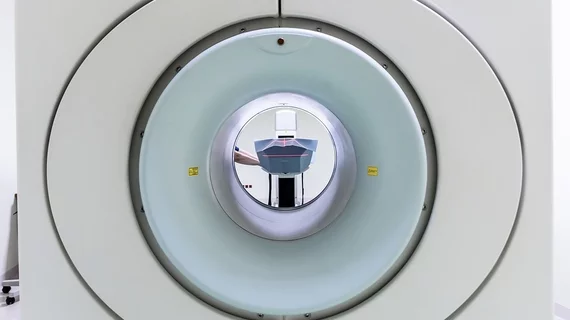Startup collaborating with Yale on new point-of-care MRI system
Yale School of Medicine and technology startup Hyperfine Research are teaming up to bring the “world’s first” portable MRI system to real-world clinics.
“The MRI systems we currently use around the world require a strict, limited access environment due to their high-field magnet design,” Kevin N. Sheth, MD, professor of neurology and neurosurgery at Yale, said in a statement. “The result is that we’ve taken a very safe technology and made it very difficult for patients and clinicians to access it.”
That’s what Jonathan M. Rothberg, founder and chairman of Hyperfine, set out to change with his point-of-care MRI system. According to an announcement from the company, the new modality can be moved to a patient’s bedside, plug into a wall outlet and work in any healthcare environment.
As part of the collaboration, Yale New Haven Hospital has been using the MRI system for a two-year study involving the American Heart Association. The New Haven, Connecticut-based institution is using it to scan patients with brain hemorrhages, ischemic stroke tumors and other brain conditions. Researchers will compare the novel system against traditional MRI and CT scans of the same patient; to-date, they have already completed 138 brain MRI scans in 123 patients.
According to Hyperfine, results of the preliminary study will be announced early next year.
The company is currently seeking 501(k) FDA approval for the modality and is not yet for sale in the U.S.
“The availability and accessibility of a portable MRI scanner has allowed us to test some patients with multiple MRI exams over a time span of hours to days,” Sheth said. “This could open up a new level of access to the rich data MRI brings, and that could have a significant impact on how we care for patients.”

